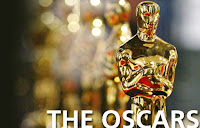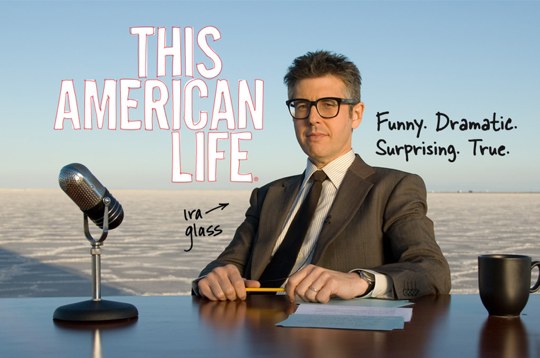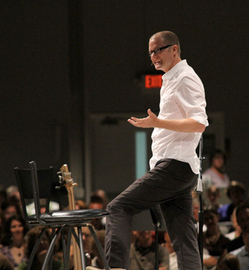The old adage is that there's no such thing as bad publicity, the idea being that it's all good as long as people are talking about you, no matter what you are saying or doing.
That's true to an extent, but even for Hollywood stars, who seem to receive more grace than anyone else, the bell will toll.
I tend not to play that angry critic game.
I'm not out to get anyone.
If I criticize, I hope it is always for the sake of something constructive. Even as the best construction is good deconstruction, they must be in the right order, if can say it that way.
Enough throat clearing.
Mark Driscoll (I won't link to him, go find him yourself) has been in the news lately, a little more so than usual, and not in a good way. He's the pastor of a church in Seattle, decisively Neo-Reformed (of the John Piper flavor), and brutish as many have criticized his male chauvinism, machismo, version of Christianity that puts men on a pedestal and views woman as inferior, to say the least.
There's a lot of speculation out there.
No one
really gets all up in arms about differing version of the Christian tradition (except for maybe the Reformed folk, but then that's pretty telling). Anymore there is very generous conversation happening about what it means to be the church.
Driscoll's Neo-Reformed version of Christianity, as such, does not bother me. I have some issues with it that I would gladly discuss, but I'm not mad at anyone.
What concerns me most that leads me to the things that I do get mad over are how theologies play themselves out. For example, Neo-Reformed theologies can lend themselves to forming very angry and closed minded and prideful people who often seem to have more faith in the bible than in Jesus. And really more faith in themselves than whatever god they confess to believe in.
(As an aside, I actually read a blog post comment where someone claimed that Christians need to obey the bible. It is a serious problem if the bible, and not the God spoken of in the bible, is to be obey.)
Case in point - about how our theologies actually play themselves out - is the story I stumbled upon recently. Not long ago I started to wonder when the first-hand stories would start to fly about Mark Driscoll from people who have been involved in his church.
You can read the story here.
In short, it's a story about an attempt at how Driscoll's church attempted to "discipline" some guy who was "in sin" that just went seriously bad.
This is the first one of its kind that I've found, but I'm sure there are more out there. It's long, but you got to read it all the way through.
Why mention all of this?
Because in our celebrity culture where people can manipulate any amount of media/social networking with any amount of organizational skill - and Driscoll's Acts 29 Network is extremely organized - people can get away with a lot. I let a lot of stuff slide, but something is happening to Driscoll that just seems vicious to me and if this story is true in any way then there are things rippling out into Driscoll's wider leadership base/influence that are really unhealthy, the second being their abusive use of Scripture. The fist being their misspeaking of the God that has revealed Himself in Jesus.
I hope I'm not misunderstood. I hope this is received generously. I welcome correction and feedback from those who know. I am an outsider, like most of us, looking in. But from what I can tell, there is more damage being done than anything else.
Where am I wrong? What am I missing?















